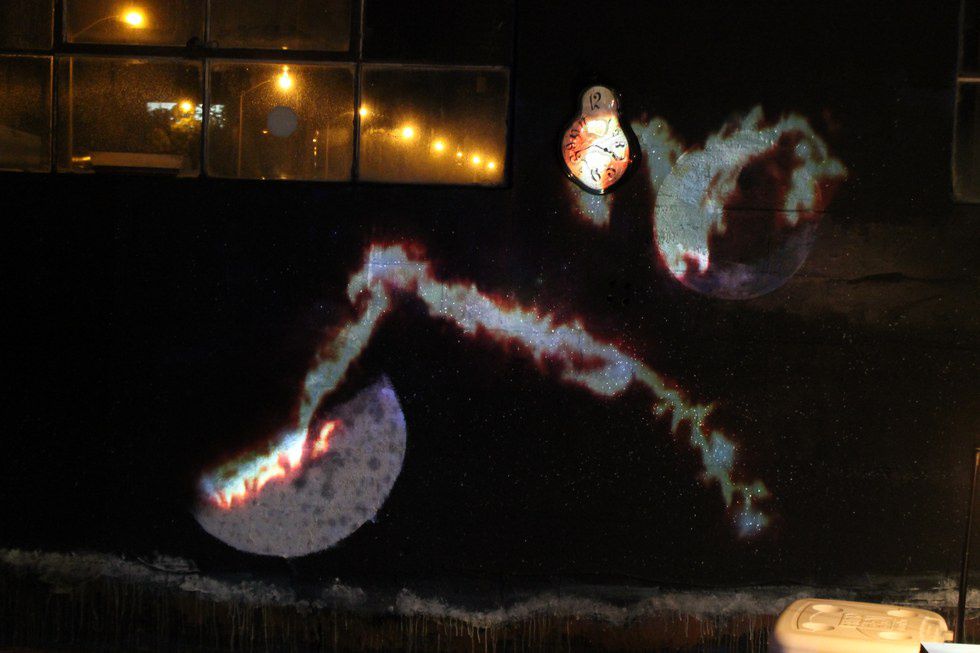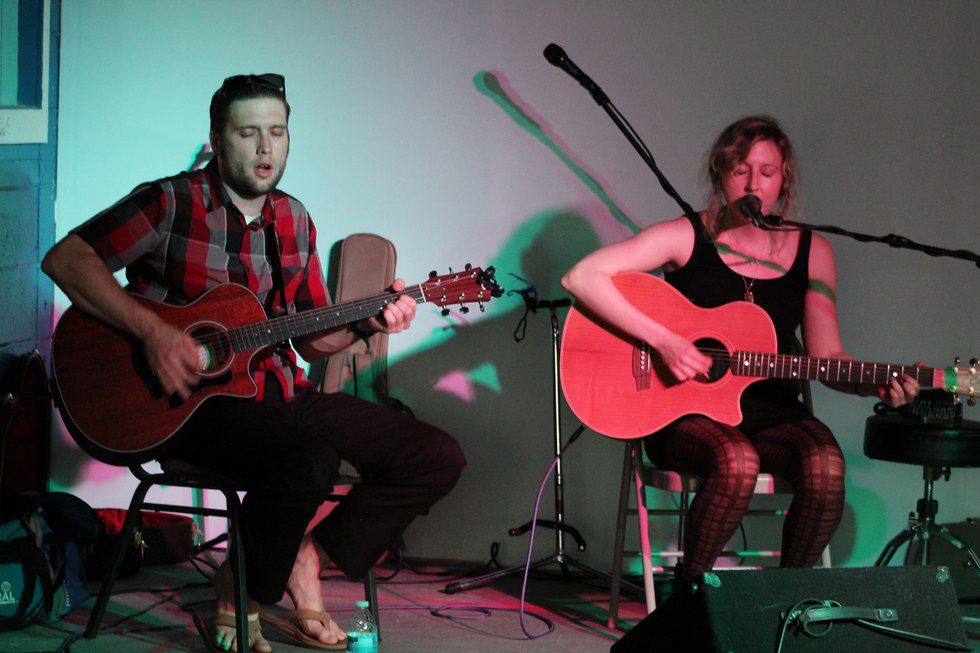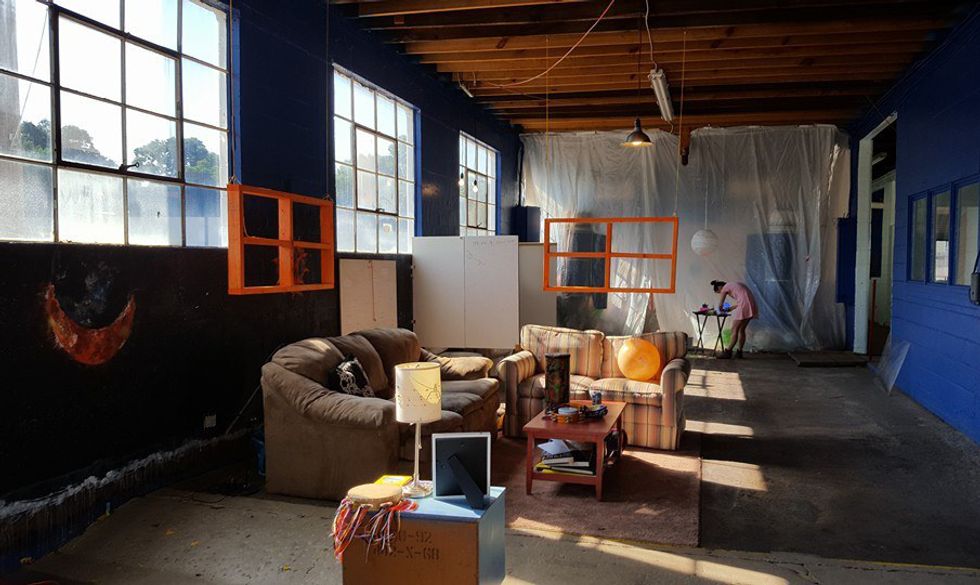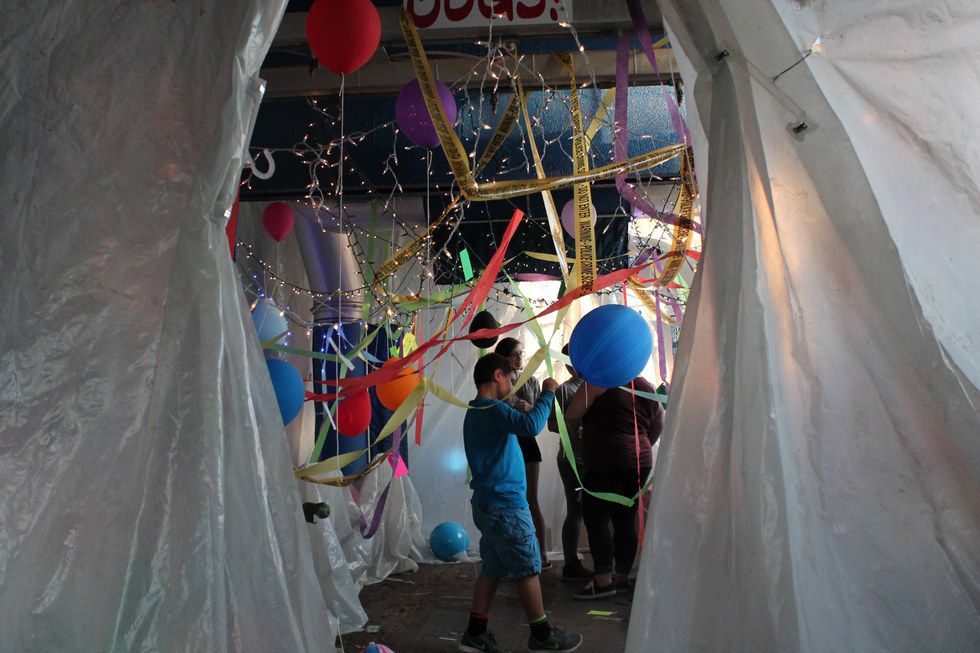Change is coming to Pensacola; there is a movement of artist and musicians inspired to use their talents for the betterment of our community. I sat down with events coordinator and philanthropist Ric Kindle to discuss his series Curated Compassion. Kindle has spent many years in Pensacola connecting artists with audiences and after recently completing his Greater Good series, Compassion is his mission.
Curated Compassion is a family friendly event designed to share cultural ideas with a collaborative and interactive emphasis. This event has something for everyone from art and music to food and fun.
Below is an edited and slightly condensed transcript of our conversation.
What would you like people to know about Curated Compassion?
Curated Compassion is a four-part music and art series with a purpose. Each show will have a different theme. The first show was Compassion. The second show was Tolerance. We’re still trying to figure out what the theme for the third one will be.
The idea is that we bring people together with fresh music, fresh art, that’s created with a theme. It’s not just art hanging on a wall it’s a 15x18 foot installation where people walk into the art and experience [it] on a personal basis… people can interact with the art.
Installation Art isn’t a new thing in other parts of the country, but in Pensacola, it’s very new.
Interaction is a big part of your events. Can you give me some examples?
Rafi Perez… did a magnet board. The idea was: what is compassion to you? Draw a picture with these magnets on this magnetic board. Rafi’s piece [was recorded] in stop motion on his phone. As it went on, you saw how people love, or… whatever compassion [means] to them. You saw their hands create that.
View a video of the Curated Compassion event, including Rafi Perez’s stop motion magnet board, here.
This time one of the installations or artist [depicted] the lack of tolerance with Target.
Referring to the controversy surrounding Target allowing transgender employees to use restrooms that correspond with their gender identity.
He did two bathroom stalls…you got to go in and [write] down things that you were intolerant or tolerant of and drop them in the toilet— kind of releasing them. And at the end, I burned them all!
I want the artist to grow along with the show. There’s going to be a four-part series here in Pensacola and after the fourth one I’ll take the show to New Orleans and do it big! Really big! I want the artists to grow as the show grows. How it will work is, we will take all four themes and incorporate them into that fifth show [in New Orleans]. So, that big show will be a culmination of all that we’ve done.
When did you come up with the idea?
A friend of mine, Rafi Perez [of Rafi Was Here Studios], his wife Klee, and I were sitting around their studio … trying to come up with a concept. I said “I wish people could be a part of the art, could interact” and [Rafi] said, “Instillations, that’s what you’re looking for.”
We came up with the concept of installation works [of] five artists— groups of artists not just individual artist, because it’s really hard for one person to do an installation by themselves. My thought is that the more people we get involved with the concept the more of an impression we make.
Klee said, “Well, you’re curating art, but you’re doing it with heart.” So, ‘Curated Compassion.’ Each show has a different organization that we are raising money for. The first show was the Beacon House [a shelter for women and children]. The second show was for Westgate Schools [a school for children who have disabilities].
A lot of work goes into these productions. Who are the major contributors to the project, besides yourself?
For the third show, I’m going to seek some sponsors. There’s a couple of people in town that have supported me through the years for events…but I’ve been funding it myself.
The entertainment has just been volunteers. I’ve got some people I want to play but it’s their job, so I want to pay them. I’m going to find sponsorship just to cover the music.
What sort of challenges do you face besides sponsorship?
Just getting the word out. Finding the people that would support an event, that get the concept. Volunteers are always needed. I’m trying to delegate stuff a little better. I need someone to do the volunteer [coordination] thing, to handle that. There’s a lot of other things besides just the volunteers that I have to be concerned with. My place in this is the big picture.
What motivates you to continue through the challenges?
I have to step back and breathe and say O.K. [this is just a little piece of the big picture] it will be O.K. I’ll work through it. I’ll figure it out. It’s just how I approach life.
How might someone get involved?
Contact me, tell me what they want to do, and follow through. It’s that simple.
How does this series appeal to the diversity of people in the Pensacola community?
I try to bring people together. Everyone’s take on the theme is unique to them. The diversity comes with the artists that are in the show. This next one on September 24th…we’ll make it a national call for artists.
What can people expect when they come out for the Curated Compassion events?
Hopefully, they are moved. Hopefully, their thought process is provoked to think, how can I do something? Or how can I be a part of something that makes a difference?
This show brings [the people] out that want to make a difference. The title of the series is Curated Compassion; what does that mean? We’re gathering compassion. We’re curating compassion through what we do and how we do it.
What sort of topics will be covered in the future?
I like empowerment, but I already do a show called Empowerment, so maybe another way of stating that. Something along those lines. Something uplifting!
How do you measure the success of your organization?
I used to look at dollars, I don’t do that anymore. I used to look at numbers, you know, …I always use a clicker at the gate…. I don’t do that anymore.
Feedback. Usually, I’ll get a message or a text or something from somebody that was there. It might just be that one that makes the whole thing worth it. I got it this time, and it was just supportive and good.
This is the mantra that I have, “I do what I do because I can, not because I have to.” I think we should all, whatever we do in life, we should do it because we can, not out of obligation or any other reason.
What have you gained from your experience with event production?
I’ve gained so many things. I’ve grown so much as a person. I’ve grown spiritually. I’ve grown artistically. I’ve grown.
People would always ask, “Why do you do this?” It’s because I can. I don’t have to do these shows—I want to. It’s very important for me to give people that space to share.
If you would like to get involved, email Ric Kindle at rkindle2012@gmail.com, or visit the Curated Compassion Facebook page. Don't forget to mark your calendars for the next Curated Compassion event on September 24th, 2016. Stay tuned for theme and location updates.
As always, if you know of a person or organization that has made an impact on the community, please nominate them for this series. Email me at Rebecca.Carlson1984@gmail.com with the subject line “Spotlight: Philanthropy” and a brief description of the nominee’s achievements.









 Photo by
Photo by  Photo by
Photo by  Photo by
Photo by 



















